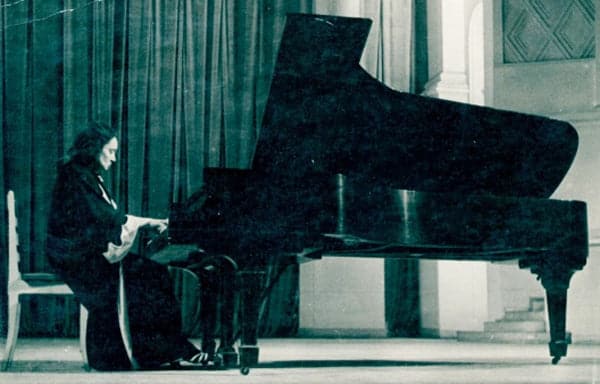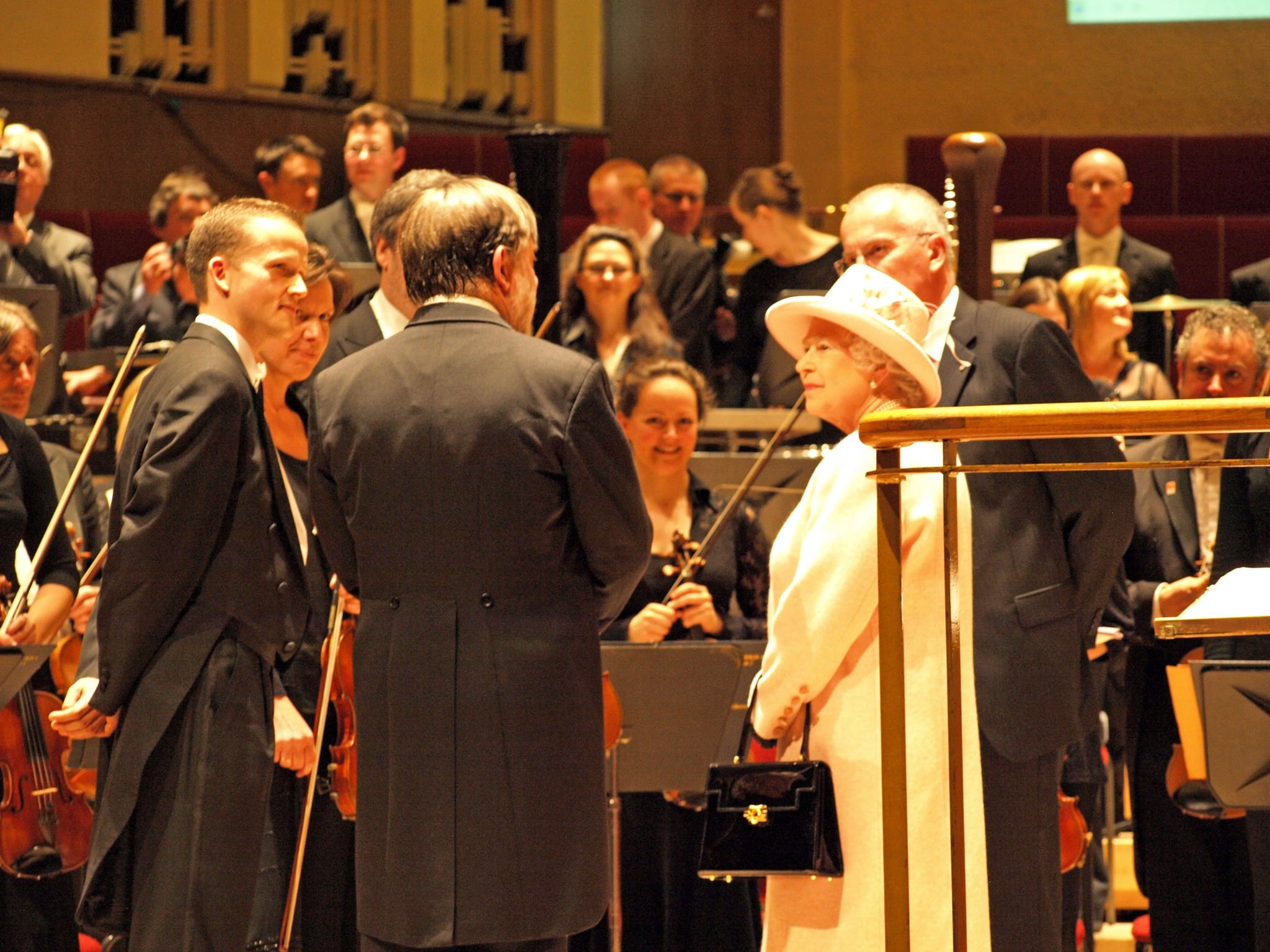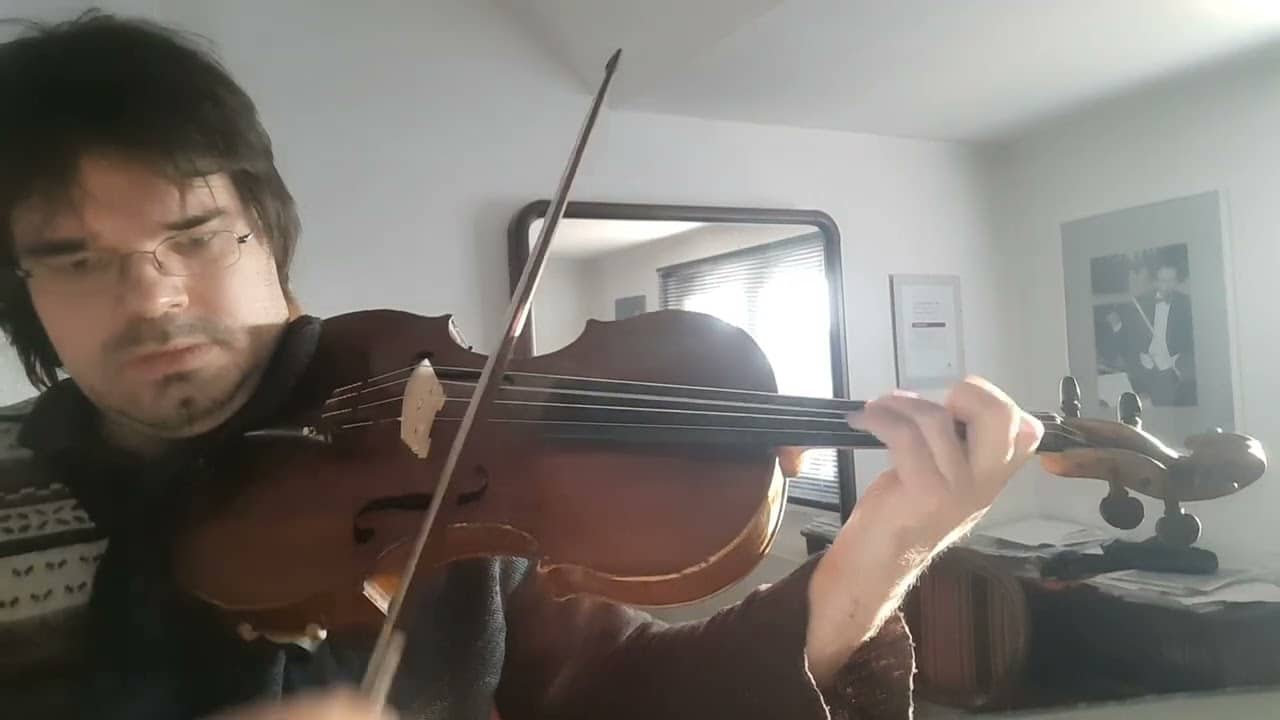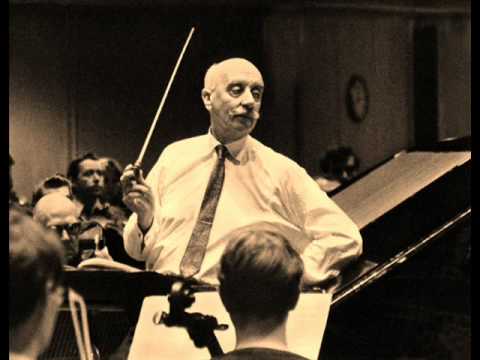Why Russia still produces the best pianists
Daily Comfort ZoneFrom my review of Elizabeth Wilson’s biography of Maria Yudina, out in this weekend’s Wall Street Journal:
This may not be the timeliest moment to proclaim Russia’s creative superiority, but the musical facts are incontrovertible. Over the past century, Russia has produced most of the world’s outstanding pianists, from Rachmaninov and Horowitz at the dawn of recording to Daniil Trifonov and Igor Levit right now.
The Soviet system didn’t interrupt the flow of talent. If anything, it accelerated the production line. Any serious music lover can enumerate without difficulty three-dozen Soviet pianists who made important Beethoven recordings. At their head are Sviatoslav Richter and Emil Gilels—one a bull-headed law unto himself, the other a petrified Party flag-bearer—and behind them are legions of relative unknowns who were denied the right to travel abroad or obtain a comfortable lifestyle….
Read on here.






Many of the greatest ‘Russian’ pianists are actually not Russian. Horowitz is from Ukraine, in fact! Many incredible early C20th pianists from Odessa.
The two greatest “Russian” soloists of all time – Gilels (yes, I place him above Richter) and Oistrakh – were both from Odessa. Also, both Jewish. Slava Ukraini. L’Chaim.
How can you get l’chaim and Slava Ukraini in the same phrase? Considering that Ukrainian nationalists under Bandera, Chukevich, Melnik killed more Jews then even Germans?
And both Oistrakh and Richter were born in Russian empire, Odessa ( noworossija ) which had nothing to do with Ukraine until the communists gave this traditionally Russian land to them.
Acts 16:31, 1 Corinthians 15:1-8, 1 Peter 1:17-21, Revelation 22:18-19
You are indeed a teenager. Yes, Horowitz and Cherkassky, and later Richter and Gilels – and their teacher Heinrich Neuhaus, and tons of others were from the Ukraine. But they were born in the Russian Empire. And their successors were born in Soviet Russia (USSR)
Maria Yudina would have been Belarusian today, and her teacher – who also taught Horowitz, Simon Barere and Maria Grinberg (the two last from Odessa) Felix Blumenfeld was also Ukrainian, from – again, the Russian Empire.
By that logic Smetana, Dvorak, and Bartok would be Austrian composers. Please try to convince the Czechs and the Hungarians that this is the proper point of view.
Hugo, by today’s logic, Bartók would be Romanian…
This is of course technically true, but then again – few would insist on Chagall being Belarusian or Rostropovich Azerbaijani.
First and foremost, Richter, Gilels, Oistrakh were Jewish. Nationality not so imporant (Richter would probably insist on German)
richter is not jewish.
Richter was not Jewish.
FYI Ukraine is historically part of Russia.
Jews from Odessa that were massacred by the fascist regime. Same like 44 antimaidan Russian protesters burned alive in Odessa in 2014.
What is your evidence for the alleged 2014 massacre?
The evidence are 44 dead antimaidan protesters and the fact that noone ever was found guilty. You don’t need research skills Wikipedia in English is enough and a little bit of desire to feel pain for anyone who suffers in war. Is the next question going to be where is the evidence for 14 000 victims of the 8 year old war. But clearly those people never mattered to anyone. Children snd women included.
It’s time for a modern, great Russian film director to take another look at those steps of Odessa!!
Preposterous. If this is simply a numbers game, Russia loses. If it’s a contest of interpretation, Russians play ‘their’ music well, but so do many others, like Americans, Europeans and Chinese. How about making less sweeping statements (that will produce fewer clicks), but survey the vast piano landscape with some degree of statistical accuracy?
How you can pretend Russia does not have an impressive and enviable track record of producing a disproportionate amount of the world’s best pianists is beyond me. We have to give credit where credit’s due: there is a cultural tradition in Russia that prioritizes the generation of certain world-class talent and they do so systematically; see: gymnasts, figure skaters, ballet dancers, pianists, Soyuz spacecraft. I only wish America could identify and develop pianistic talent with the same level of dedication and success.
I would like to hear at least one American or (and particularly!!) Chinese name that even remotely reminds of Rachmaninoff or Gilels, or Yudina, or Grinberg, or Ginzburg. Your statement is incompetent and suits your name very well, “ANNOYED GUEST”. You ARE annoying.
not so fast … or you never listen to young Pianists …I am listening … see and hear …
Well, let’s start with Moscow, which takes in children from age 6 at the Central Music School and the Gnissin Institute – identifying kids with talent and putting them in the care of superb teachers – nurturing them until age 18 when they enter the Moscow Conservatory. All major Russian cities maintain such schools, so top-level training is plentifully available at low cost from the earliest ages. The Russian system of musical education cannot be beat!
Very well-said. They dedicate plentiful resources and get results. It’s not mystery or magic. It’s a systematic effort and quite likely the best in the world.
As we all recognize, there is always “supply and demand”. Ludwig’s… your thought is 100% correct but this is the only a “supply” part. The real reason of Russian success is that the society created the DEMAND for this kind of supply. Even now there is a huge demand in quality music education from very early ages, something that LACKS in the US, EU, UK and elsewhere in the Western World!!
By the way, the same DEMAND exists in Ukraine, as it was for many years a part of the Soviet system. Well, not now of course, so tragically. But Ukrainians will rebuild as soon as this awful nightmare is over. And we all will see a new and renewed generation of great pianists and other artists from Ukraine, as it always produced: Richter, Gilels, Oistrakh, Kogan, Horowitz and numerous others.
>> quality music education from very early ages, something that LACKS in the US, EU, UK and elsewhere in the Western World!!
if you mean publicly, sure (public education for all)
if you means the kinds of kids in these countries who (whose parents) seek such education and training, pianistic and other, then you need to keep up, really
There is something else which is significant: the commendable sense of discipline which Russian pianists and indeed other artists (not least ballet dancers) have. It may be old-fashioned in the West to praise such qualities but they ensure the highest standards of performance. I well remember being at a performance of Mahler 4 with the LPO and Vladimir Jurowski, and being delighted at the sight of the soprano soloist Sofia Fomina sitting perfectly still on the conductor’s left from the very start of the performance, and then getting up very elegantly after forty-five minutes to deliver a perfect solo in the Finale. That’s discipline for you!
She’s a great singer and a lovely girl.
The system gets results, but at what cost? Watch the documentary Over The Limit (about Russian rhythmic gymnastics coaching) for a hair-raising display of psychological abuse. Russian students have told me this closely mirrors the music education style. A teacher once told me after a teaching exchange trip to the Moscow Conservatoire that the early teenagers were phenomenal but most of those in their early 20s seemed disturbed and/or burnt-out. I can’t see this as a price worth paying.
I have heard similar comments from a Russian academic, who was active in a different field but loved music. His child wanted to learn the piano, just for fun, but had no option but to attend a very rigorous music school, where he burnt out.
Here’s the documentary mentioned above. Not for the faint-hearted https://www.youtube.com/watch?v=e2OHgnGgV8E
unavailable usa 4/11 eve
Russians are also the biggest classical music/Western culture online pirates.
They were the best because they had talent and decent teachers from day 1 and they went home and practiced. Simple as that.
“Russia has produced most of the world’s outstanding pianists…”
In the name of diversity I would like to add a few modest non Russian additions:
Argerich,Gould,Arrau,Zimerman,Lipatti,
Michelangeli,Pollini,Brendel,Cortot,Uchida de Larrocha,Schiff.
Glad to see you mention Arrau, for me the greatest of them all, largely overlooked in his adopted home. Ah, American philistinism.
He is honoured at the Teatro Municipal in Santiago de Chile. There’s a very decent Steinway in the Sala Arrau.
Arrau may not that recognizable among people who don’t care for classical music. But I would be the opposite should be the case among professionals and afficionados, not least because of his monumental recorded legacy.
Besides, Arrau had a richly deserved hero’s farewell in Chile in 1991:
https://www.youtube.com/watch?v=WDqGR69Vt9I
Hard to watch with a dry eye. What a contrast to his understated demeanor, on and off stage.
The author didn’t say all of them are Russians/Soviets. But it should be fairly self evident that a DISPROPORTIONAL number of great pianists from the 20th and 21st century so far have come from Russia/USSR. And this remains true even after normalising by population. I could make the same statement about chess. The reason, as other have stated, is system of identifying talent and nurturing them to full potential under a very rigorous system.
Bravo Michael – a voice of reason in this crazy ‘debate’. Apart from Beatrice Rana and Simon Trpceski of today’s generation of pianists, whom I have already mentioned, to your list I would add Maria Joao Pires, one of Haitink’s favourites. I remember a Richter recital years ago and was disappointed by his over use of the sustaining pedal, which clouded the occasion at least as much as the excessively dimmed stage lighting. With fond memories of your Mozart in Swindon.
Violinista:
Richter had his weak recitals too you know-that is why he rarely accepted most of his recitals to be published:he was too demanding.
None less quoting HIS BAD recital you talk about as a milestone to his reputation is silly.
And you Michael! I have gained enormous pleasure from your cds.
Yes, undoubtedly, but let’s separate the weeds from the grains: Gould is very far from Uchida nad Schiff! And Argerich is NOT de Larroccha, as well as Michelagneli is NOT Pollini, with all due respect. Have some “diversity” and integrity in classification. When we talk the level of artistry of Rachmaninoff or (in modern times) Glenn Gould then people like Ignaz Friedmann, Ferruccio Busoni, Moritz Rosenthal, Joseph Hofmann, Rosalyn Tureck, A.B. Michelangeli come to mind much rather than rather pale names of A. Schiff or M. Uchida and M.Pollini. These are INCOMPARABLE figures.
Michelangeli was an Olympian.
I agree with all those pianists you name there, Michael. I might add a couple of French artists, Thibaudet and Roge. Also tho of a more recent vintage, Stephen Hough. As a boy l had the honour of seeing John Ogden in action in Birmingham, and since he was a joint Tchaikovsky comp winner( along with a Russian that year) reckon he can stand proud too
Not to mention Artur Rubinstein, who was everything Horowitz was not: a full-time concert performer who made 100+ annual appearances around the globe, played recitals, chamber music, and a large concerto repertory, adhered to a regular recording schedule, and maintained his technical facility into his late 80s.
Serkin,Goode,Perahia,…
Fischer
They are all superb, twelve names from ten different countries. I have a particular fondness for Arrau who, along with the superb yet underrated David Wilde, introduced me to Liszt. My first-ever recital was to hear Brendel (QEH, 1970s) yet I still feel that Ashkenazy tops Pollini.
Since we’re here, Vladimir Ashkenazy. Genius and gentleman. The gold standard.
and many more … Hmmm… Enescu …
Igor Levit??!!! China owns the piano world now.
I didn’t know that Beatrice Rana was Russian nor Simon Trpceski et al.
Simon Trpceski in not Russian! I know him.
Yes he is NOT Russian that is the point. I was orchestra manager for him when he made his UK debut and I also highly regard his recordings on that wonderful piano at Potton Hall.
Igor Levit left Russia when he was about 8.
It s a tragedy to be a Russian as much as it is to be a Ukrainian. It s tragic to belong to humanity and to witness /suffer/perpetrate the horror. It s also awning to discover and to explore the so-called Russian soul, that contradictory mix of refinement, tenderness, compassion, humility , nostalgia, absurd idealism, despair , angst, brutality, grandeur, extreme cruelty, complete madness, nihilism in the works of Gogol, Dostoevsky, Pushkin, Lermontov, Tolstoy, Turgeniev, Bulgakov and others. The murderer Rogózhin embracing the failed saint Prince Myshkin next to Nastasia Filipovna s catafalque: that is the quintessence of the Russian soul. Deal with it and try to remain sane.
I was waiting for someone to bring up the tired trope of the Russian soul which is often used to explain or justify the negative aspects of their culture. Deal with it – indeed, the Ukranians are.
I cheer on the Ukrainians to deliver a daily quota of at least 500 Russian soul-S to heaven or hell, whatever they deserve. It’s turned into a homophobic, hateful, brainwashed country.
*awing
Rachmaninoff and Horowitz fled Russia and Igor Levit, Russian born left Russia as a child and received his training in Germany. Russia produces fine pianists for sure, but ‘the greatest’? Where does that place Schnabel, Cortot, Kempff, Curzon, Michelangeli, etc, etc?
Yes, but Rachmaninov wrote his greatest concert N2 for piano while he was dreaming of Russia and missing his motherland.
Really? Especially if one always wants Russian accent and exaggeration.
They may start off in Russia, but a disproportionate number get out at the earliest opportunity. And they stay out. There’s a reason why so many fled the East for the West, and not the other way round.
Money and consumerist lifestyle that we have thanks to hard working Chinese people.
Its a matter of schooling/training from a very young age- simple as that. Plus the ‘Russian Method’ of piano pedagogy- i.e stressing complete relaxation of the arms to let the fingers do their intricate work & leading to good cantabile tonal projection of what is essentially a percussive instrument- is very successful above all others. Peter Bithell- one of England’s most distinguished pianists/teachers & professor at the GSMD once remarked me to be casually how much young British talent presented at audition but were completely hampered by poor instruction which was almost impossible to unwind by the stage of conservatoire level, thereby precluding a career as a pianist. But of course, as previously mentioned a lot on this thread- there are brilliant pianists of all nationalities/ schools. There’s no other reason why ‘Russians’ should be predominant.
Because there is no way to measure pianists’ or anyone else’s greatness, it all comes down to opinion. You pays yer money and you takes your cherce.
“Any serious music lover can enumerate without difficulty three-dozen Soviet pianists who made important Beethoven recordings.” …
36 important Soviet Beethovenian pianists? Nope, can’t do it.
Oh dear, I guess I’m not a serious music lover after all.
Brava!!
Great pianist!!
I fully agree to this statement:Russia produced the best pianist on earth:Richter being the one.
Period!
Date: 3rd April 2022.
I have read the other comments with much interest. From a purely personal perspective, I find that comparing musicians on grounds of nationality rather rather narrow and insular.
For me, the “best” performers / conductors are those who champion new and neglected repertoire, irrespective of ethnicity.
Bravo! Performing music of the past by composers alive and/or deceased is only 50% of our job.
Levit and Trifonov ????? Great ??????? Don’t make me laugh!
You are right:not worth listening to more than 2 seconds!!
My ancestry is from Odessa and Kiev. Someone recently asked if I play like American school (what does THAT mean??) or Russian school?? I laugh when I am asked such questions. First of all, my teachers were trained by European pianists. Adele Marcus studied with a Hungarian teacher in Los Angeles, then with Josef Lhevinne in NY and Artur Schnabel in Berlin. There were fabulous pianists and instrumentalists who left Europe to live in the US and make it their home. They brought the traditions with them, so, anyone taught during my generation or earlier were taught in the old world manner. That is not American. Pianists from South America also came to the USA with traditions from their homeland. It is very naive in a sense to narrowly say the best pianists came from Russia. That also opens the door to intense criticism of what was considered the old Russian school of pianistic finesse, beautiful sound etc, and the later pianism emphasizing speed and volume way above the old traditions. I believe there is a place for both, depending on the music at hand. Generalization and limiting our vast population of pianists is not a good idea. It closes us off from many wonderful peoples and traditions.
Good comments Jeffrey- coming from a professional pianist. It could be argued that the ‘American School’ is the ‘Russian School’- afterall- a notable number of top US pianists of the last half century studied with Rosina Lhevinne. But I agree- we should be careful of ‘national’ over generalisations.
“Production line” is sadly the right term. As a big fan of improvisation/composition, I’d like to point out that you are talking about a classical system which is not really nurturing creativity. I’m not impressed by the n-th virtuoso from Moscow or Beijing who had a dictator of a teacher-coach in his youth, and I’d love to see musicians who also can create new works. Please name some.
Jeez, evidently, we can’t even agree that Russia produces the best Russian pianists.
I just want to throw a grenade into this hot tub:
there was only one György Cziffra.
Right on, David!
Listening to Cziffra’s records, after all the pianists who preceded and followed him and after all these years, still brings a tingle of amazement (and gratitude).
It’s curious that there is no mention of the man who really does have a claim to greatness , and who I would nominate as our greatest living pianist , Grigori Sokolov
Yudina’s Bach Goldberg Variations puts follow Lady Tureck’s piano Goldbergs to shame. To me Yudina stands out amongst female pianists in the Goldbergs as such Sokolov stands out amongst todays pianists.